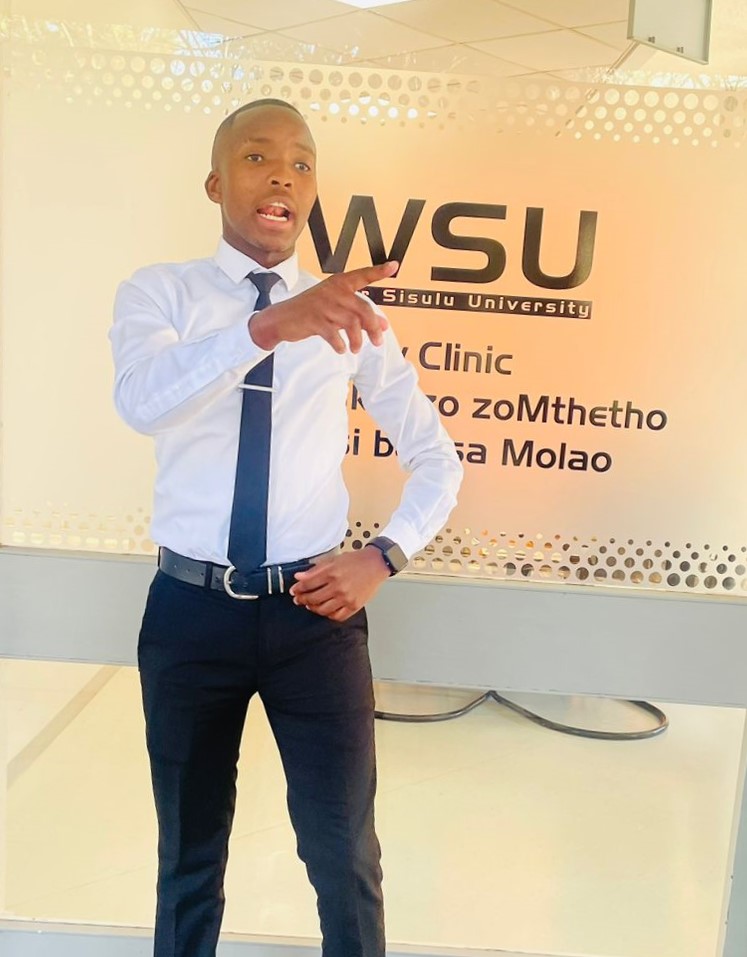INADEQUATE HEALTHCARE ACCESS IN MARGINALISED COMMUNITIES REFLECTS A DEEP-ROOTED ISSUE REQUIRING LEGISLATIVE REFORMS

Inadequate access to healthcare in marginalised communities in South Africa breaches the fundamental human right to health, which underscores the need for legislative reforms, improved policies, and better resource distribution to ensure equitable access to healthcare and safeguard the rights of all citizens.
A study conducted by Bachelor of Laws students, Mlondolozi Mvikweni, finds that constraints, inadequate infrastructure, and resource misallocation disproportionately affect marginalised underprivileged communities, resulting in inequitable healthcare access and a violation of the fundamental human right to health.
‘Healthcare access inequalities in South Africa are deeply rooted in historical, socio-economic, and political factors, exacerbated by systemic disparities. Addressing these issues requires a comprehensive evaluation of existing legislative frameworks and human rights obligations, alongside innovative strategies to enhance access and equity in healthcare services,” said Mvikweni.
Mvikweni’s research explores Section 27 of the South African Constitution, which guarantees everyone the right to access healthcare services, including reproductive health.
According to Mvikweni, real-world challenges such as funding constraints, lack of infrastructure, and uneven service distribution are just some of the key factors that hinder the effective implementation of healthcare access, particularly in underserved regions, limiting the ability to uphold the constitutional right to quality healthcare for all.
A recent collaborative study with Head of Department of Anaesthesia, Prof Busisiwe Mrara, produces alarming figures which reflect the effect of inadequate access in marginalised communities in Africa.
According to the study, approximately 69% of critically ill patients are cared for in general hospital wards instead of high-dependency or intensive care units, with about 56% not receiving essential emergency and critical care, such as oxygen, intravenous fluid, and proper positioning, necessary to save their lives.
Mvikweni said, “Legislative measures and policies have been undertaken to make this right accessible to every human being in South Africa, regardless of his or her financial or social status or background.”
These include the National Health Act 61 of 2003 which contains a provision that requires the state to afford people access to healthcare without paying any fee.
“There are several challenges that still hinder access to healthcare services in South Africa, particularly in rural areas. These challenges include a lack of road infrastructure, inadequate healthcare facilities, financial difficulties, and poor services at existing clinics or hospitals,” said Mvikweni.
He added that these lead to poor service delivery, long waiting times, and a lack of specialised care which compromises the quality of healthcare provided, especially in rural areas.
He said, “For example, many rural clinics lack basic equipment and staff, leading to poor health outcomes. Government initiatives to upgrade facilities and increase staffing could improve access.”
Mvikweni presented Cuba’s healthcare community-based care model, which focuses on providing accessible, preventative, and comprehensive healthcare services at community level, prioritising primary care and addressing health disparities.
“Implementing Cuba-inspired policies in South Africa would require significant adjustments, including increased investment in community health programs and medical training. Legal frameworks would need to accommodate these changes while ensuring they align with constitutional right.”
The study aligns with the United Nations Strategic Development Goal 10: Reduced Inequalities and Goal 16: Peace Justice, and Strong Institutions.
It was published in the Noyam E-Journal of Humanities, Arts and Social Sciences (EHASS).
-By Ongezwa Sigodi
